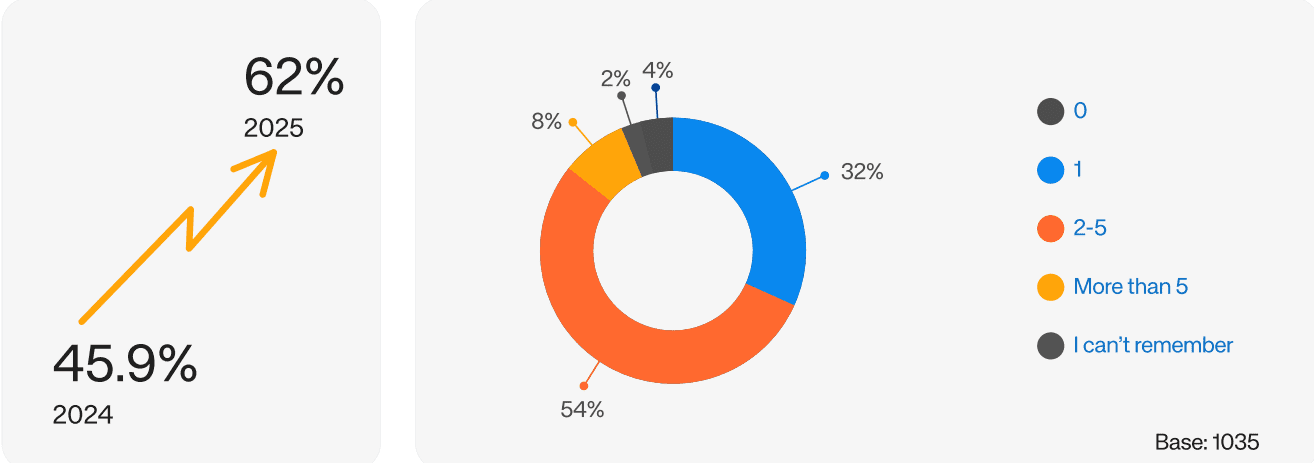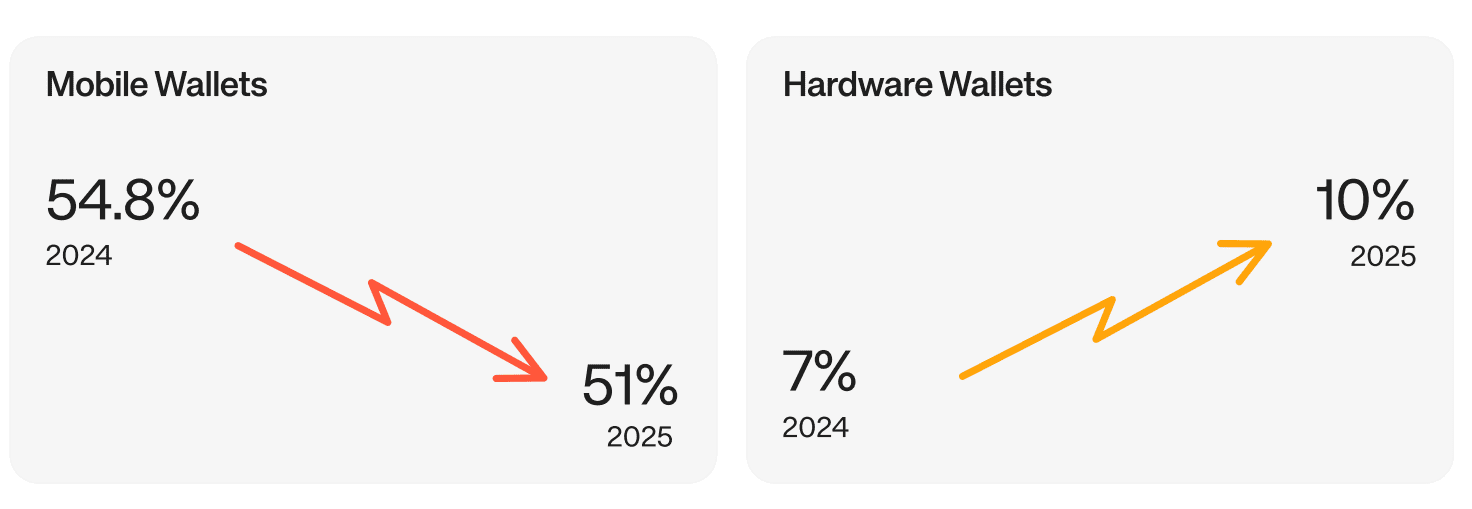A recent industry report highlights that fragmentation and user experience complexities are major hurdles to widespread cryptocurrency adoption. The study reveals a significant increase in multi-wallet usage, with most users now employing at least two wallets to manage their crypto assets.
The primary reason behind this trend is the lack of interoperability between different blockchains. This forces users to create and manage separate wallets for interacting with various networks. According to a research report by Reown and Nansen, 62% of crypto users utilize at least two wallets, a 16% increase from the previous year.
Security concerns and poor user experience are also significant factors. The report indicates that over 18% of respondents cited security as their top concern, while 10.6% highlighted poor usability as the biggest issue.

AI Integration: A Potential Breakthrough for Crypto Wallets
Experts believe that integrating artificial intelligence (AI) into crypto wallets could be the next major advancement in improving user experience and security. Eowyn Chen, CEO of Trust Wallet, emphasizes that wallets are evolving beyond simple asset storage tools to become gateways to Web3 services, including digital identity, financial products, governance, and gaming.
According to Chen, AI-powered wallets could act as intelligent, personal companions that understand user behavior, preferences, and needs. AI agents can simplify Web3 navigation and mitigate risks from scams like phishing attacks, which often involve tricking users into sending assets to fraudulent wallet addresses.
The need for more secure and user-friendly wallets became evident after a large-scale Bitcoin theft. An attacker stole $330 million worth of Bitcoin through a social engineering scam targeting an elderly US citizen.
Mobile Wallets Dominate, Hardware Wallets Gain Traction
The study also examined wallet preferences among users. Mobile wallets remain the most popular choice, with 51% of users preferring them, although this is a slight decrease from 54.8% in 2024. However, hardware wallet usage is on the rise, increasing from 7% to 10% year-over-year, indicating growing adoption among more advanced crypto users.

Social wallets, which are linked to a user’s email or social account and do not require a seed phrase, are transforming onboarding. They are at the forefront of UX innovation, adopting technologies like passkey signers and gas abstraction. Derek Rein, CTO at Reown, highlights their simplicity and user-friendliness, emphasizing that users shouldn’t need to understand gas tokens or chain switching to transact.

Despite the advancements, users remain cautious about social wallets. 39% of surveyed respondents indicated that improved security and trust would encourage them to adopt these wallets.
Key Takeaways:
- Multi-wallet usage is rising due to blockchain interoperability issues.
- Security concerns and poor user experience are hindering mainstream adoption.
- AI integration holds promise for simplifying user experience and improving security.
- Mobile wallets are the most popular choice, but hardware wallet usage is increasing.
- Social wallets are innovating onboarding, but security concerns persist.
In conclusion, the cryptocurrency landscape is grappling with the challenge of wallet fragmentation. AI integration, enhanced security measures, and improved user interfaces are crucial for driving wider adoption and creating a seamless experience for crypto users. As the industry evolves, addressing these issues will be essential for realizing the full potential of decentralized finance.